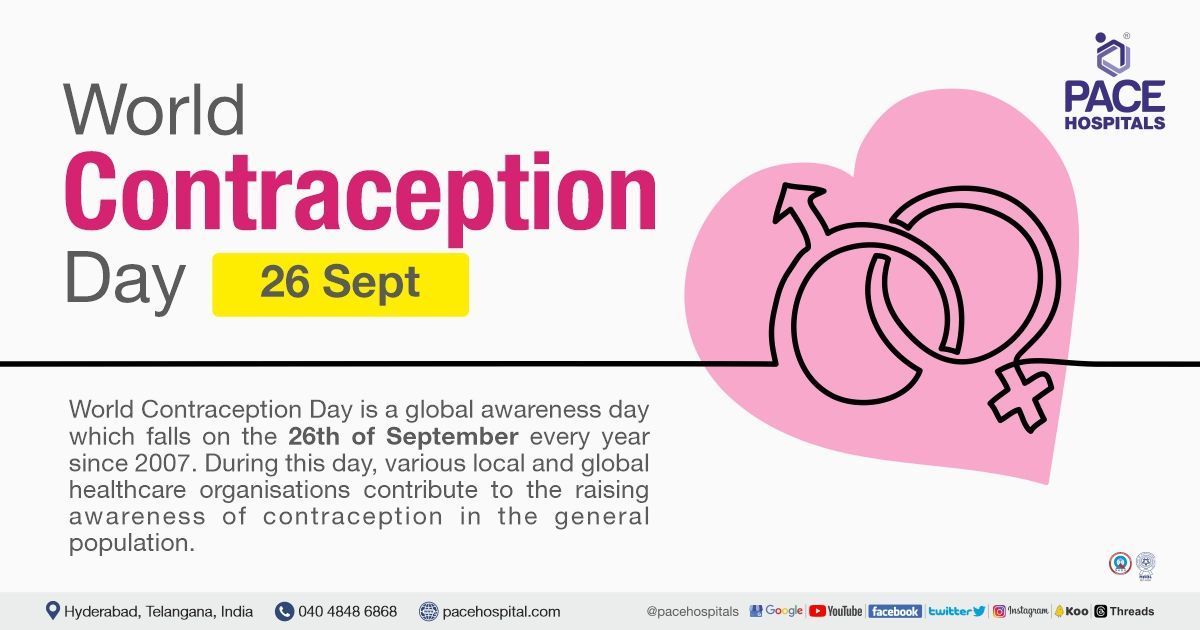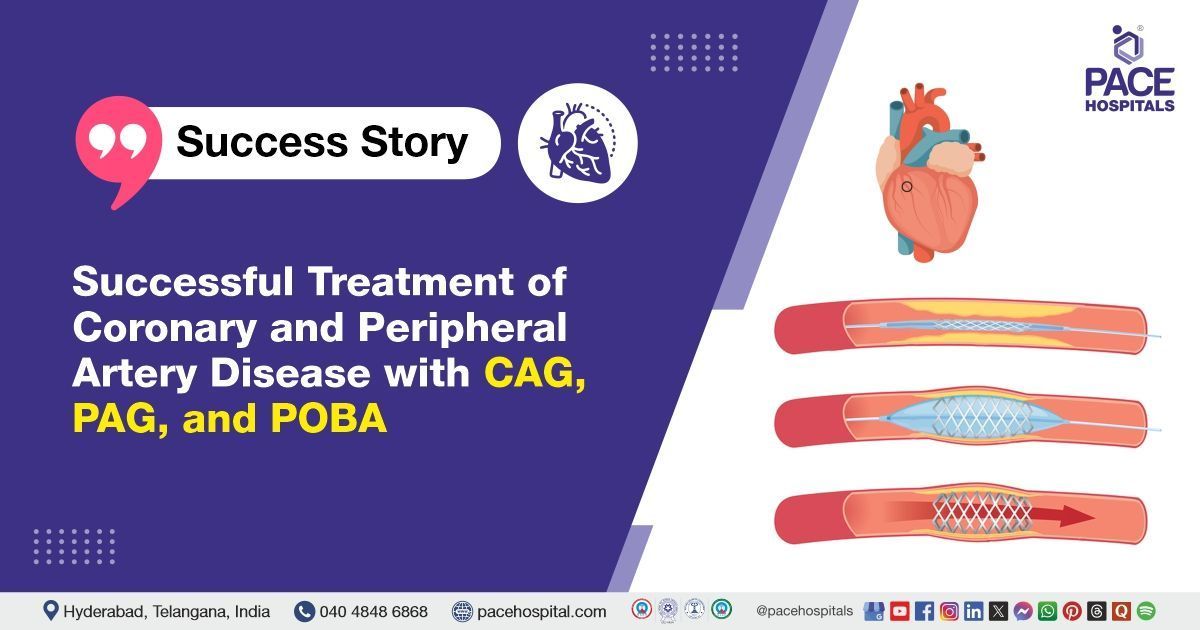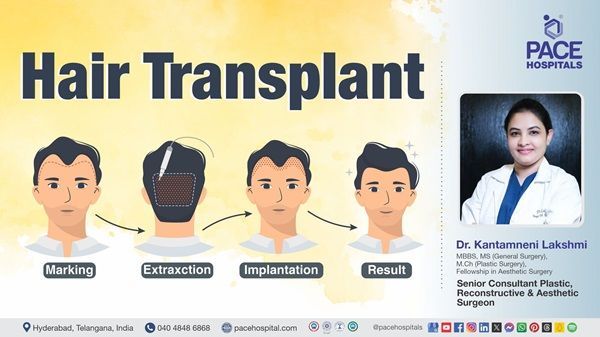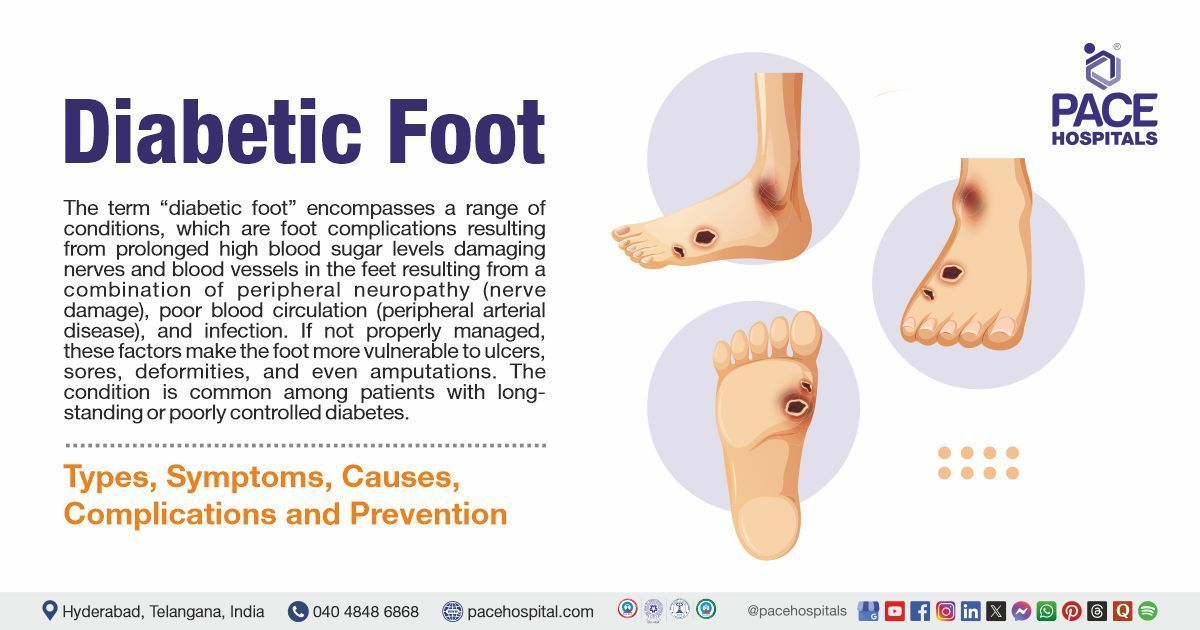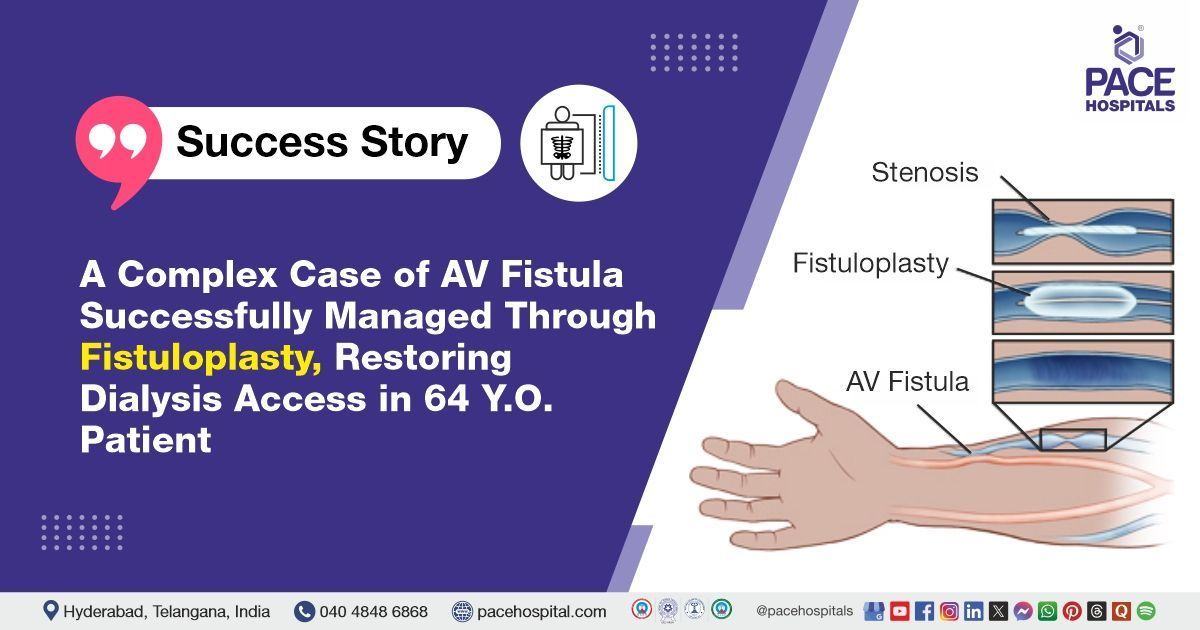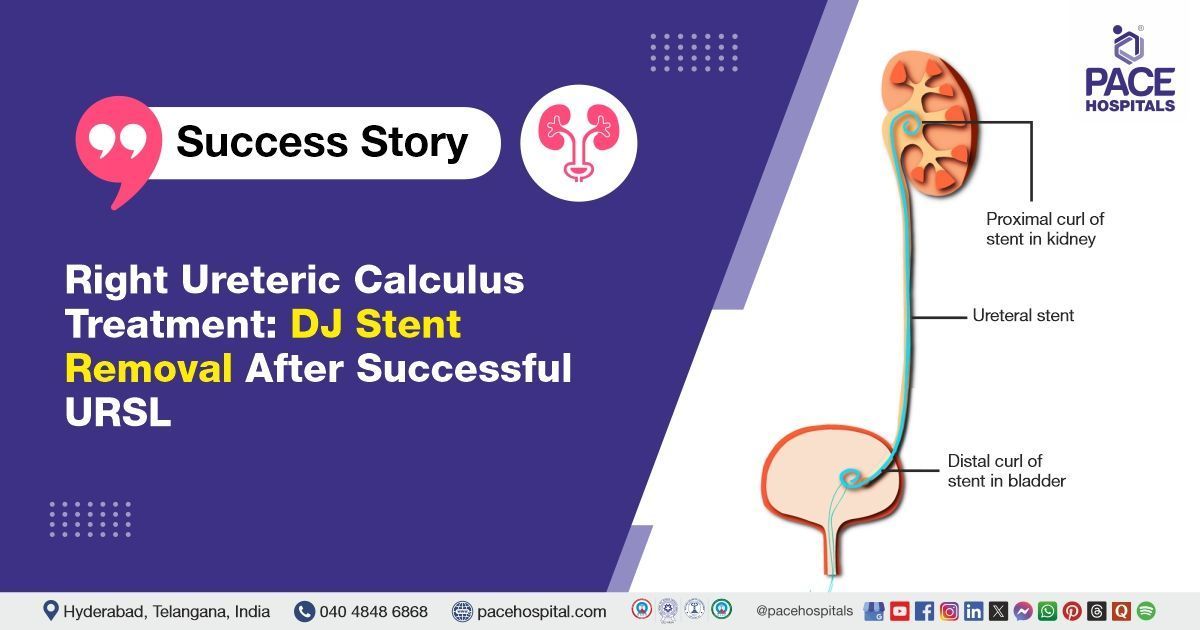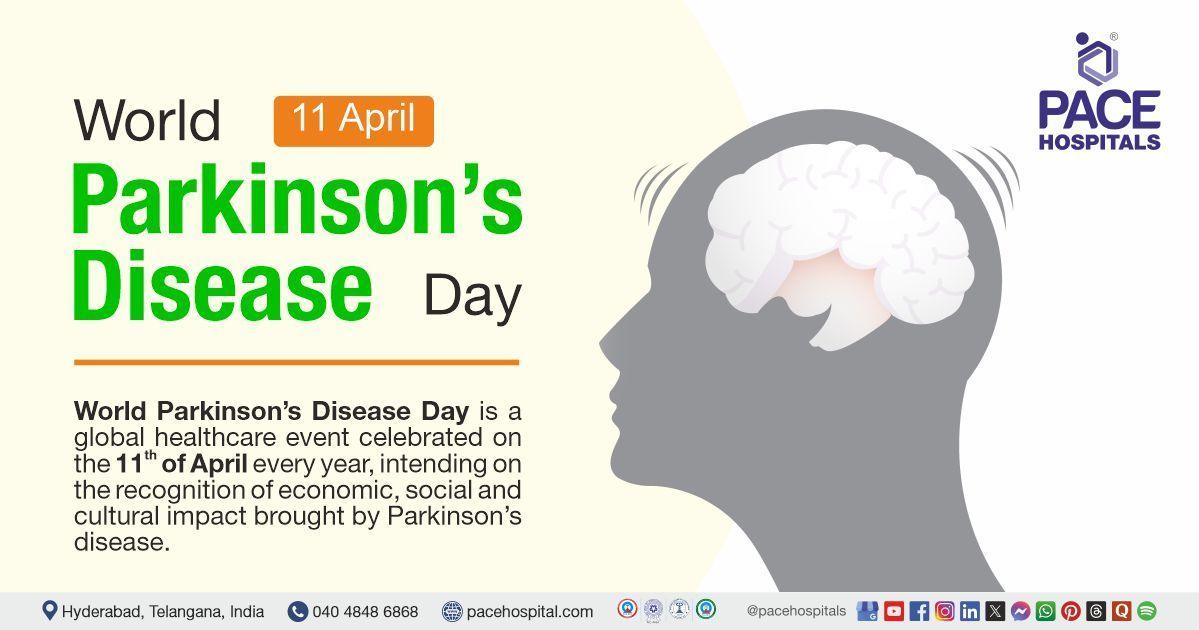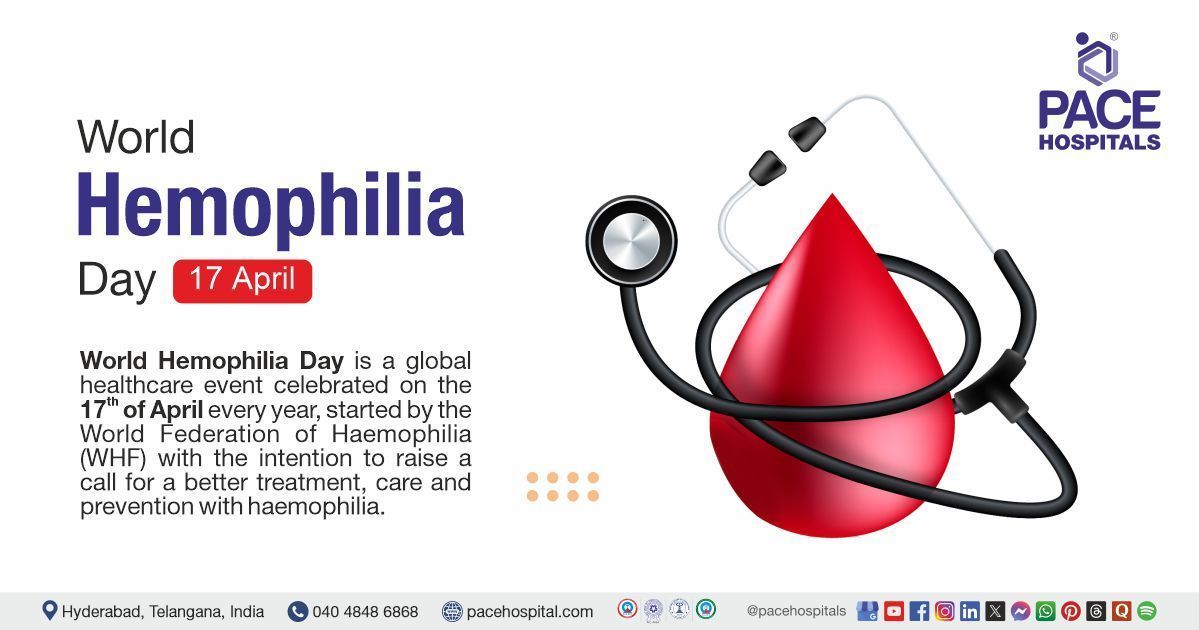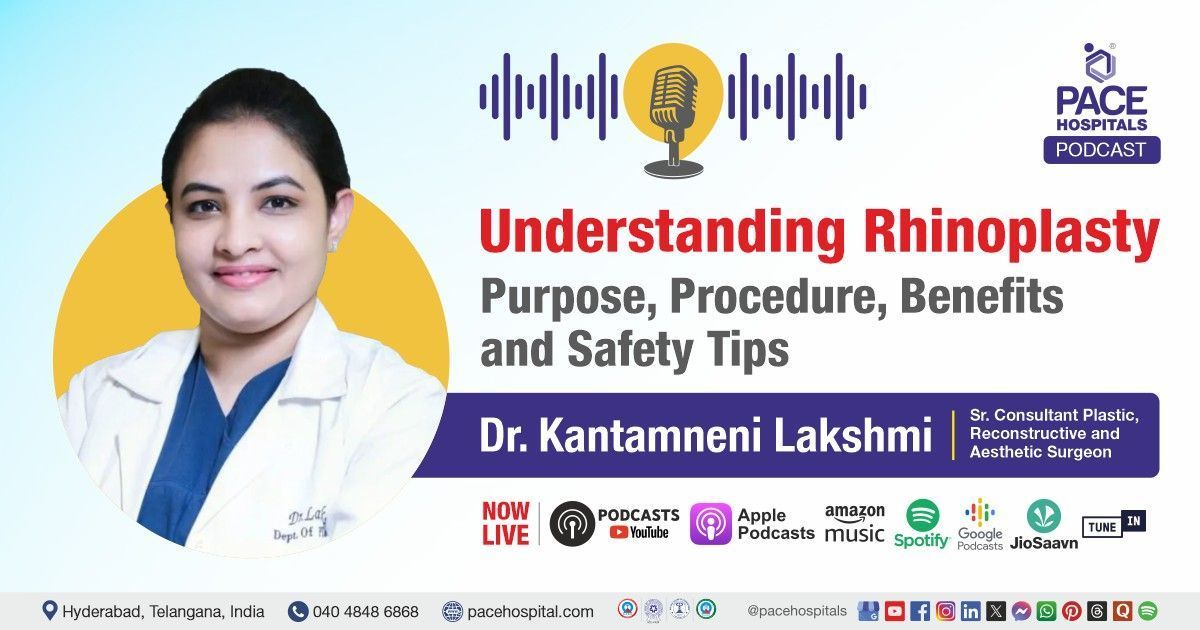World Contraception Day 26 Sept 2024 – Theme, History, Importance
The World Contraception Day is a worldwide awareness day that has taken place on the 26th of September every year for the past fifteen years. During this day, various local and global healthcare organisations gather around to raise awareness of contraception in the general population.
The word contraception has been put forward by combining the words "contra" (against) and "conception" (the process of conceiving in the womb). Various methods of contraceptives include oral contraceptive pills, implants, injectables, patches, vaginal rings, intrauterine devices, condoms, male and female sterilisation, lactational amenorrhoea methods, withdrawal, and methods based on fertility awareness.
World Contraception Day is essential to spread awareness of various contraceptive options to individuals, especially young men and women, regarding Family Planning and Reproductive Health.
Importance of World Contraception Day
The importance of World Contraception Day is to promote awareness about contraception, promote the overall health of individuals (both men and women), promote open discussions in the global population about the indications of contraceptives, promote the rights of women, and promote gender equality worldwide.
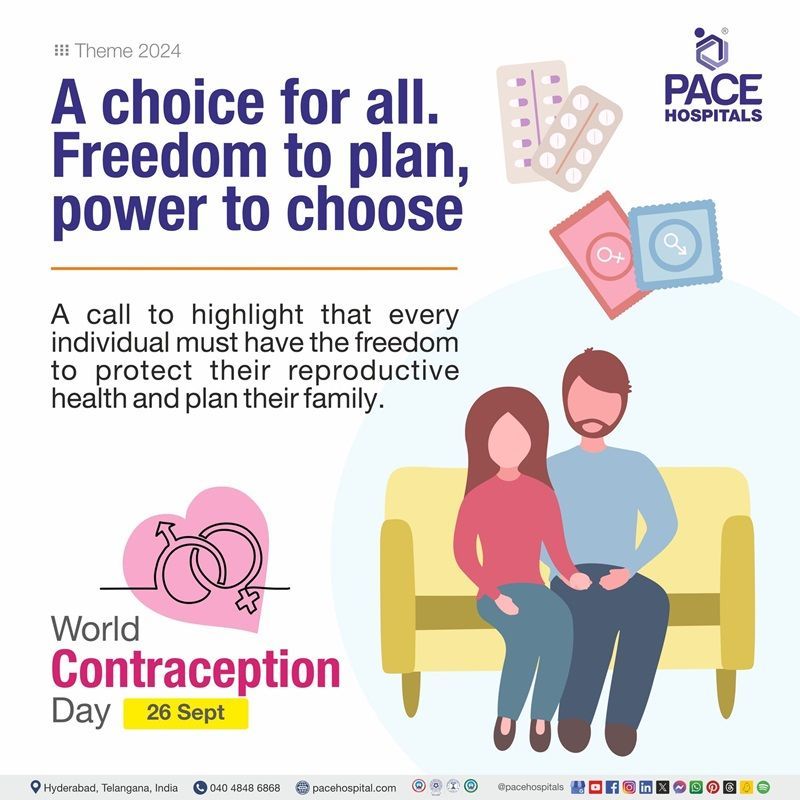
World Contraception Day 2024 Theme
This year, 2024, the theme of World Contraception Day is "A choice for all. Freedom to plan, power to choose." This theme highlights that every individual must be guaranteed the freedom to protect their reproductive health and to plan their family, access to contraception to bodily autonomy and achieve one's full potential; it helps reduce adolescent births, prevent maternal deaths, and further gender equality.
Year by year, the themes for world contraception day are:
- World Contraception Day 2023 theme: The Power of Options
- World Contraception Day 2021 theme: It's your life, it's your responsibility
- World Contraception Day 2020 theme: Know your options
- World Contraception Day 2019 theme: It’s your life, it’s your responsibility
- World Contraception Day 2018 theme: It’s your life, it’s your responsibility
History of World Contraception Day
The day “World Contraception Day” was started in the year 2007. On this day in 2007, ten worldwide family planning agencies across the world declared that the use of contraception, enabling a deliberate choice to have children, was the crucial step.
This expression by the late Dr. Nafis Sadik, former executive director of the United Nations Population Fund (UNFPA), was voiced in 1994 when she said, "Healthy families are created by choice, not by chance." At least 15 international NGOs, medical and scientific communities, and governmental organisations support this day and its goals today with the intention of disseminating accurate information on sexual and reproductive health.
Several international institutions, notably the UN (United Nations), which promotes universal access to sexual and reproductive health care, emphasise the importance of World Contraception Day on the 26th of every September.
Necessity of World Contraception Day
Contraception not only plays a major role in preventing unintended pregnancies but also essentially in reducing sexually transmitted diseases (STDs) between the partners and mothers to newborns, as well as indirectly reducing the need for unsafe abortions.
Currently, over 25 crore women who don’t want to get pregnant are not using safe or modern methods of contraception. According to the UNFPA survey, at least 17.2 crore people are not using any form of contraception.
Factors that negatively influence contraception
Even in these days of widespread knowledge, there are still various hindrances to the proper usage of contraceptives. The following are some of the various hurdles which are necessary to overcome, breaking the boundaries of hushed tones and spreading contraceptive awareness:
- A worry about side effects
- Religious or cultural antagonism
- Gender-based obstacles
- A few options
- Services offered are of low quality
- Limited availability of contraceptives
International statistics and facts on contraception
Some of the common statistics and facts regarding contraception include:
- Currently, there are about 25.7 crore women who attain pregnancy despite their choice in planning
- Nevertheless, contraceptive methods are not employed
- IUDs are regarded as the safest form of contraception, having a failure rate of less than 1%
- Women of all ages often choose a pill as their preferred form of birth control
- Since ancient times, both men and women have utilised contraceptives. Studies have shown that contraceptives were used by women in Ancient Egypt as well
- Contraceptive use protects against sexually transmitted diseases (STDs) as well as averting unintended pregnancies
Request an appointment
Fill in the appointment form or call us instantly to book a confirmed appointment with our super specialist at 04048486868
Appointment request - health articles
Thank you for contacting us. We will get back to you as soon as possible. Kindly save these contact details in your contacts to receive calls and messages:-
Appointment Desk: 04048486868
Whatsapp: 8977889778
Regards,
Pace Hospitals
Hitech City and Madinaguda
Hyderabad, Telangana, India.
Oops, there was an error sending your message. Please try again later. We will get back to you as soon as possible. Kindly save these contact details in your contacts to receive calls and messages:-
Appointment Desk: 04048486868
Whatsapp: 8977889778
Regards,
Pace Hospitals
Hitech City and Madinaguda
Hyderabad, Telangana, India.
Our Locations – Find the Best Hospital Near You
Metro Pillar Number C1772, Beside Avasa Hotel, Hitech City Road, Near HITEC City Metro Station, Hyderabad, Telangana, India.
Mythri Nagar, Beside South India Shopping Mall, Hafeezpet, Madeenaguda, Hyderabad, Telangana, India.
040 4848 6868
Payment in advance for treatment at PACE Hospitals, Hyderabad, Telangana, India (Pay in INR ₹)
For Bank Transfer:-
- Bank Name: HDFC
Company Name: Pace Hospitals
A/c No.50200028705218
IFSC Code: HDFC0000545 - Bank Name: STATE BANK OF INDIA
Company Name: Pace Hospitals
A/c No.62206858997
IFSC Code: SBIN0020299
Scan QR Code by Any Payment App (GPay, Paytm, Phonepe, BHIM, Bank Apps, Amazon, Airtel, Truecaller, Idea, Whatsapp etc).

CONTACT US
Call: +914048486868
WhatsApp: +918977889778
Email: info@pacehospitals.in
FOLLOW US
SUBSCRIBE
Subscribe to our newsletter and stay updated with the latest health information.
Subscribe to PACE Hospitals' Public Newsletter
Thank you for subscribing to PACE Hospitals' Newsletter. Stay updated with the latest health information.
Oops, there was an error. Please try again submitting your details.
ABOUT US
QUICK LINKS
Disclaimer
General information on healthcare issues is made available by PACE Hospitals through this website (www.pacehospital.com), as well as its other websites and branded social media pages. The text, videos, illustrations, photographs, quoted information, and other materials found on these websites (here by collectively referred to as "Content") are offered for informational purposes only and is neither exhaustive nor complete. Prior to forming a decision in regard to your health, consult your doctor or any another healthcare professional. PACE Hospitals does not have an obligation to update or modify the "Content" or to explain or resolve any inconsistencies therein.
The "Content" from the website of PACE Hospitals or from its branded social media pages might include any adult explicit "Content" which is deemed exclusively medical or health-related and not otherwise. Publishing material or making references to specific sources, such as to any particular therapies, goods, drugs, practises, doctors, nurses, other healthcare professionals, diagnoses or procedures is done purely for informational purposes and does not reflect any endorsement by PACE Hospitals – your trusted hospital near me.

